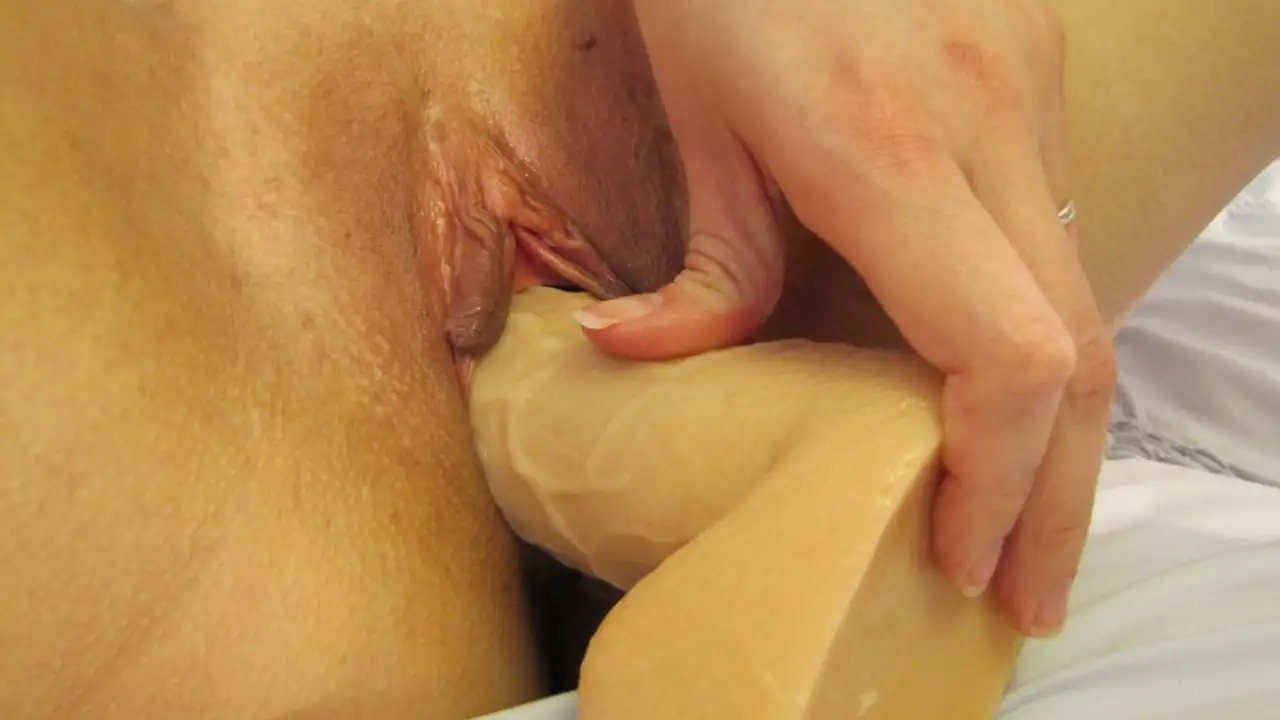Understanding Vaginal Burning: An Uncomfortable Conversation Worth Having
As the health-conscious guy known as Ethan, I'm no stranger to tackling awkward topics head-on and in the spirit of promoting sexual health, let's make some cappuccino and journey into the realm of vaginal burning and lubricants – yes, lubricants. It might seem perplexing for some but ladies, trust me, it can make all the difference in the world. It's essential to remember this: no matter how embarrassing or trivial it may seem, addressing your health concerns is crucial, even if the topic concerns sensitive areas like your lady parts.
The Anatomy of Vaginal Burning
Vaginal burning, itching, or discomfort, ladies, can often be a sign of a variety of different health conditions. A slight, temporary discomfort could be due to mild irritation, but if the burning sensation persists, it might be an indication of something more serious. Irritations can come from a wide range of sources: Certain types of clothing, soaps, dyes, or other products that come into direct contact with the skin in the vaginal area. Allergies, infections, sexually transmitted diseases, menopause, and certain skin conditions can all contribute to the burning sensation. The ambulance of possible causes showcases the importance of understanding your bodies and seeking professional help when necessary.
Lubricants: Secret Weapon or Undercover Menace?
Ever feel like a perfectly good intimate scenario is being sabotaged by persistent discomfort? Enter lubricants, the unsung heroes that often save the day during such moments. Lubricants can be beneficial in easing vaginal discomfort during sexual intercourse, especially for women experiencing vaginal dryness. However, with so many products available on the market, it is crucial to understand which ones can do more harm than good. I'm gonna lay it down straight here, folks; some lubricants are villains undercover, causing more irritation and potentially exacerbating the problem.
Know Your Lubricant: The Lingo Explained
Getting to grips with lubricant jargon can be daunting. You walk into the store (or online, because hello - it's 2023!) and you're bombarded with phrases like 'water-based', 'silicone-based,' and 'oil-based,' each claiming to be the best. And even in the comfort of my homely abode, trust me, it took me a while to decode the conundrum of lubricant types. Water-based lubricants are easy to clean up, compatible with latex, but dry out quickly. Silicone-based ones last longer, are great for water play but can damage silicone toys. Oil-based lubricants, on the other hand, are long-lasting but can degrade latex and are tough to clean off. Choose wisely, ladies!
Ingredients to Avoid: Don't Let Your Lubricant Double-Cross You!
What goes in a lubricant can significantly influence how it interacts with your body. Glycerin, for example, a common lubricant ingredient, can increase the risk of yeast infections in some women. Another sinister additive is Nonoxynol-9, a spermicide known to cause irritation and even tiny lesions in the vagina. Also, be cautious about fragrances and flavors. They might smell like a rose garden or taste like chocolate fondue, but they are a minefield of potential irritants. In case you are wondering, yes, I did turn my kitchen into a pseudo-lab to understand the chemistry behind them better.
Allergies and Sensitivities: Your Body Speaks, Listen!
Vaginal sensitivities can also play a significant role in causing discomfort. Every woman's body is different, and what works for one might not work for the other. Some women may be allergic or sensitive to certain ingredients in lubricants. It can be tricky to identify these sensitivities, but observing and understanding your body's reactions is vital. If experiencing burning or discomfort after usage, it could imply a possible allergy or sensitivity. Listening to your body, ladies, is just as crucial as getting the most out of your favorite Netflix show.
A Personal Experience: Sometimes It's More Than Just Burning
I promised a relatable story with a 40% percent chance of including it. Well, it's time to take you down the memory lane, to when a close friend of mine experienced an episode of persistent vaginal burning. Despite countless trials with over-the-counter medications and various lubes, the discomfort didn't subside. It turned out she was dealing with a hormonal imbalance linked to menopause. It took a professional medical consultation to pinpoint the cause— a poignant reminder that self-diagnosis has its limits.
A Final Verdict: The Big Picture
Vaginal burning can be a distressing experience. And while lubricants can alleviate discomfort and enhance sexual pleasure, the key is in choosing the right one. Go for products free from harmful ingredients, keep an eye out for any allergic reactions, and most importantly, listen to your body. When in doubt, seeking advice from a healthcare professional can provide clarity and peace of mind. Because whether we're talking about your favorite latte or sexual health, knowledge is power, ladies!



Comments
This is why I stopped using lube. 🤮
I appreciate the breakdown of lubricant types. Water-based is my go-to-easy to wash off and doesn’t mess with condoms. But I’ve learned the hard way: if it stings, stop using it. No shame in switching brands.
Honestly, I wish more guys talked about this. It’s not just a ‘women’s issue’-it’s a shared experience. Thanks for normalizing the conversation.
I’ve been using Sliquid H2O for years and never had an issue, but I did try one of those ‘natural’ brands that said ‘no glycerin’ and it was basically just water with a hint of lavender and a whole lot of disappointment. Also, if you’re using it for dryness related to hormones, talk to a doctor. No lube fixes estrogen deficiency. And yes, I’m speaking from personal experience-menopause is not a myth, it’s a season.
I’ve seen so many women suffer in silence because they think it’s normal. It’s not. I used to think burning meant I wasn’t ‘turned on enough.’ Turns out, it was a UTI. And then a yeast infection. And then… a reaction to my partner’s soap. We switched to fragrance-free body wash and everything changed. Listen to your body. It’s smarter than you think.
I’m appalled that this is even a topic of discussion. Lubricants? Really? Why not just focus on natural intimacy? This commercialization of sex is disgusting. And don’t get me started on ‘flavored’ products-this is not a dessert shop!
Let’s be real: 80% of these ‘natural’ lubes are just sugar water with a marketing team. Glycerin isn’t the villain-it’s the marketing lies. Brands slap ‘organic’ on a bottle and charge $25. Meanwhile, the real problem? The FDA doesn’t regulate this stuff. You’re basically injecting chemicals into your vagina and hoping for the best. No oversight. No testing. Just vibes and vibes.
This is why America is falling apart. We’ve turned intimacy into a Walmart aisle. Who even needs lube? Back in my day, we just… talked. And prayed. And if it burned? Well, that’s what God gave you to learn patience. This generation’s so weak they need chemical help to have sex. 🇺🇸
I think this whole thing is a Big Pharma scam. You ever notice how every time someone writes about vaginal burning, the next ad is for some $40 lube? Coincidence? I think not. The real cause? 5G radiation. It messes with your pH. I’ve got a cousin who used aluminum foil underwear and it fixed everything. No joke. Also, check your smart fridge. It’s probably spying on your intimate life.
Bro, I read this whole thing and I still don’t know if I’m supposed to use this stuff or not. But I do know one thing: if your partner says ‘it’s normal,’ they’re lying. I used to think my girl was just being dramatic. Turns out, she had a bacterial imbalance. We switched to plain water-based lube and now she’s actually into it. Who knew?
I’ve been reading about this for months. You know what they don’t tell you? That lubricants are designed to make you dependent. Once you start using them, your body forgets how to produce its own moisture. It’s like a drug. And the worst part? They’re pushing this on teens now. I saw a TikTok ad for ‘youth-friendly lube.’ WHAT IS THIS WORLD?
In the classical Indian texts, the body is viewed as a temple of balance-doshas, prana, and subtle energies. Vaginal discomfort, when viewed through Ayurveda, is often linked to excess Vata-dryness, anxiety, and cold. Lubricants, if used, should be warm, organic, and unprocessed-coconut oil, sesame, or even ghee. The modern obsession with ‘chemical-free’ is ironic: most modern ‘natural’ products are industrially processed. True purity lies in simplicity, not branding.
I’ve been married 22 years. We never used lube until she turned 50. Then we tried a little water-based stuff. It was like rediscovering each other. No drama. No hype. Just… better. If it helps, use it. If it doesn’t, stop. Simple.
The article says ‘listen to your body’ but doesn’t mention that some women have zero sensitivity and don’t feel burning until it’s a full-blown infection. Also, ‘nonoxynol-9’ is listed as bad-but not everyone knows what that is. Define terms. You’re not helping if you’re just name-dropping chemicals.
As someone who has reviewed over 200 intimate care products for medical journals, I must emphasize that the clinical literature overwhelmingly supports water-based, glycerin-free, paraben-free formulations as the gold standard for symptomatic relief. The notion that ‘natural’ means safer is a dangerous fallacy. Many botanical extracts-such as tea tree oil or aloe vera-are potent allergens. In controlled trials, fragrance-free PEG-based lubricants demonstrated the lowest incidence of mucosal irritation. This is not a lifestyle choice-it is a biophysical reality.
I tried EVERYTHING. Even that $50 ‘vaginal wellness’ lube from that influencer. Burned worse. Then I found out my partner’s laundry detergent was the problem. Switched to free & clear. Done. No lube needed. Why do we always blame the lube? Look at the WHOLE picture. 🤦♀️
I’m a guy who reads this stuff because I care. Not because I’m trying to ‘fix’ anything. Just to understand. My partner told me last week she felt better after switching to a silicone-free lube. I didn’t ask why. I just said, ‘cool, what’s the brand?’ We didn’t make it a big deal. That’s all it takes sometimes. Just show up. Listen. Don’t fix. Just be there.
I don't care what you use. Just don't use that stuff near my kids. That's all I'm saying.